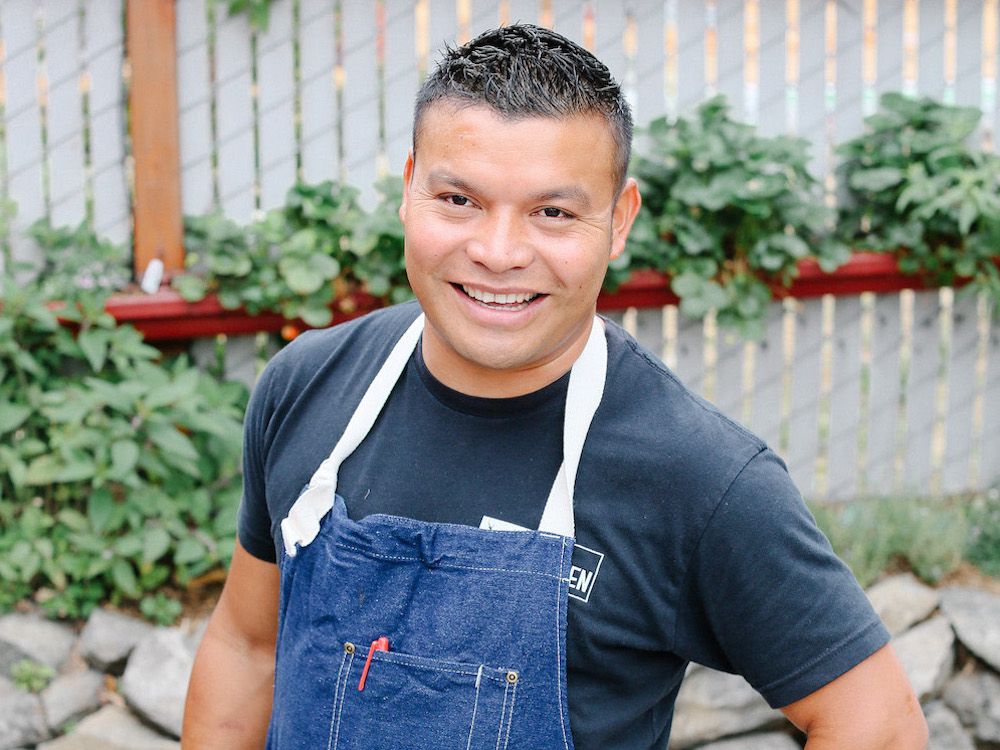
May 23, 2023 – By now, you’ve seen Patrice Boyle’s letter reprinted here in Edible Monterey Bay, and sent out to the Soif mailing list on behalf of chef Santos Majano and his business partner Lejla Borovac.
Boyle is a whole hearted supporter of their plan to take over the space that was Soif, and tells us they had most of their funding lined up until two separate investors dropped out due to personal reasons unrelated to the concept.
She says their plan is sound, they know what they want to accomplish, and are realistic about the challenges, being restaurant people.
“Santos and Lejla Borovac want to take over the restaurant space and they have a great concept and are well-organized,” Boyle tells us. “They have a number of investors and committed funds. I really want to see them move forward. Santos is such a good guy, has amazing training and has truly worked his way up, including at Cyrus in Healdsburg.
When he was working in the kitchen at Soif, we became friends. When he left Soif to open his own place, he was so honorable about it and he explained everything to me. It was such a joy to do business with him. Then he started the experience at Discretion, which was great, but it’s too small. He needs a bigger palette: he needs a bigger place and kitchen. So we are honored to try and help them. Ultimately, my goal is to have less on my plate, not more!”
Speaking of plates, she’s plenty busy with La Posta and still loves it, despite all the turmoil of the pandemic: in fact, it has endeared her more to her loyal staff and customer base.
Boyle had not intended to have a restaurant at all, when she opened Soif in 2002. “My initial concept was simply a wine shop and a little wine bar. The restaurant kind of happened because of city requirements,” she says. “As it turns out, I love the restaurant business, and I am still in it!”
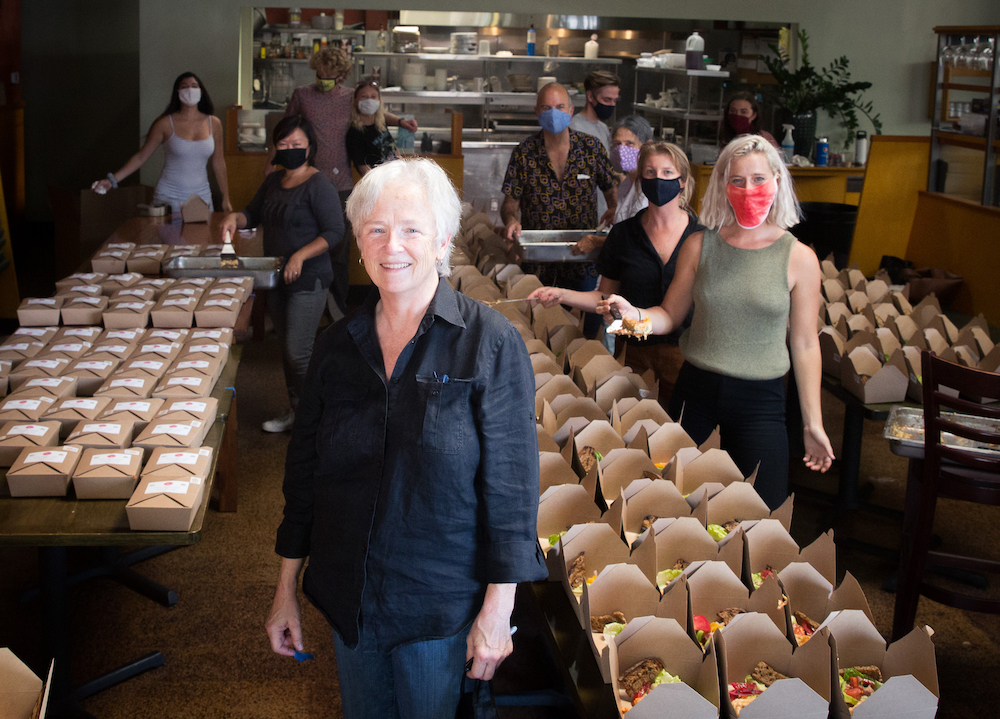
Without that restaurant, she would never have met Santos, or had the experience of wonder and satisfaction that comes from creating a space where people find joy, comfort and sustenance: a space where servers can share their passion for hospitality and where everyone in the kitchen, from prep to line to executive chef, can engage in the sacred process of feeding people.
On a recent evening on the La Posta restaurant floor, she says she took a minute and was just watching people conversing and enjoying themselves.
“Eating is a basic human function,” she observes. “From this point of view, it is personal and intimate, and honestly, I have been thunderstruck that people trusted me and that I had this heavy responsibility.
It all has to be great: you have to be vertically integrated in every aspect, from how we source and the ethics of it all, including how to pay people fairly. You cannot deliver this product if it’s not fully integrated. And that’s what makes it’s so much fun. We have a great time. Every evening as we get ready for service, we look at each other and say, ‘It’s show time.’”
Boyle regrets that the costs of opening a new place in Santa Cruz are so egregious, that they are stifling attempts by young entrepreneurs. She blames in part the largely absentee landlord class that has owned property for decades and would rather see a space vacant than lower the rent. The other part of the problem is the fact that too many people who don’t even know the area, let alone live in it, are involved in the planning process.
“I know at least six or seven projects that are in the works, mostly downtown, from soup to nuts: all different kinds of projects and all involve food and wine service people,” says Boyle. “They are all being held up.”
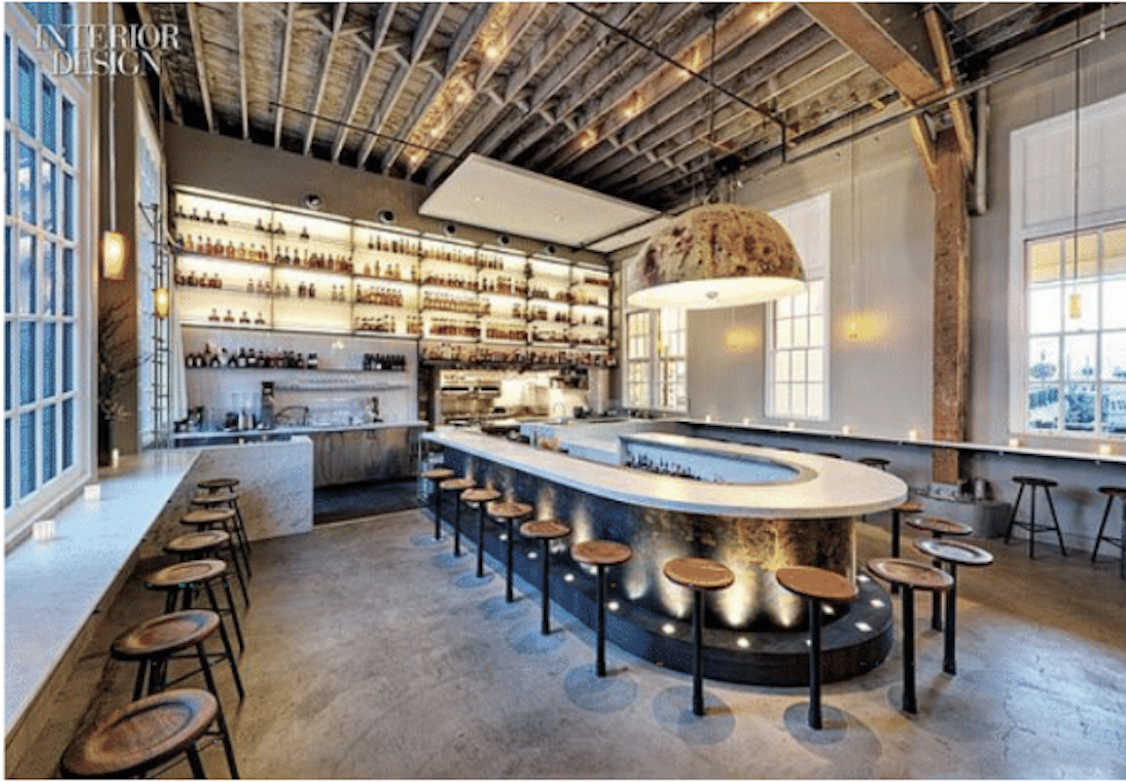
Surely, this is derailing the future of the city. “If we want a more exciting food scene in this town, we need to reward the innovators,” says Boyle. “These are the young people who are building the future. Sadly, you cannot afford to do anything innovative, when your build out costs you at least one million dollars, unless you are being backed by someone who doesn’t care about getting a return on their money.”
Boyle is adamant about her belief in Santos, who she says has been approached by many restaurants wanting to hire him, but all he wants is to do his own thing. His business partner—who has a hospitality background and has worked front of house in restaurants in San Francisco and New York City—has a great vision for what they can accomplish together.
Lejla Borovac tells us they are planning a seafood-driven concept that is focused on sustainability. “We want it to be an approachable neighborhood gathering spot, a place where you can bring the kids and feel comfortable.”
“The name is Hook & Line, and we have the branding all done,” she says. “It will be a subtle nautical theme, and we are planning a full refresh without breaking the bank!”
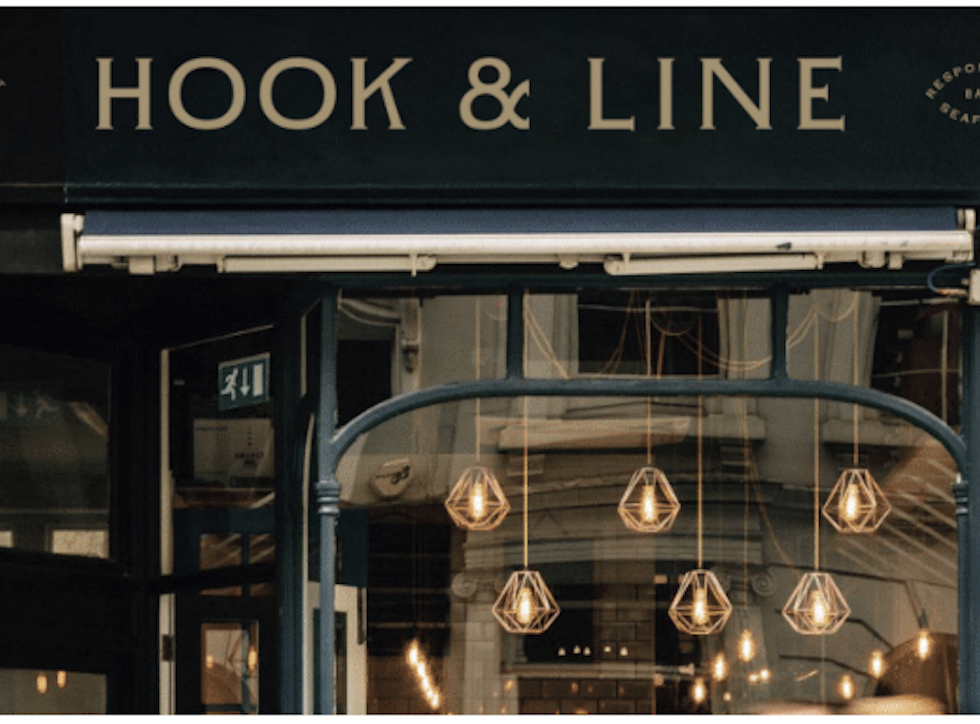
Hook & Line will have a completely different look and experience from Soif, and will be modern and bright. The bar area will be more integrated with the restaurant area and include additional seats, in more of wraparound construct. They plan an outside parklet that will add another 15 seats when complete.
The bar will have really good cocktails, and will focus on smaller artisanal producers, and not strive to carry all the major brands. And no TVs. “This is not a sports bar!” Borovac says. The wine list will follow the cocktail approach, and will be very focused on small and artisanal, featuring examples from coastal regions all over the world. There will be an emphasis on low intervention wines, with lots of female wine producers, representing great diversity.
“We have had some new interest from the newsletter going out, which is exciting and we are talking to a few new people!” she says.
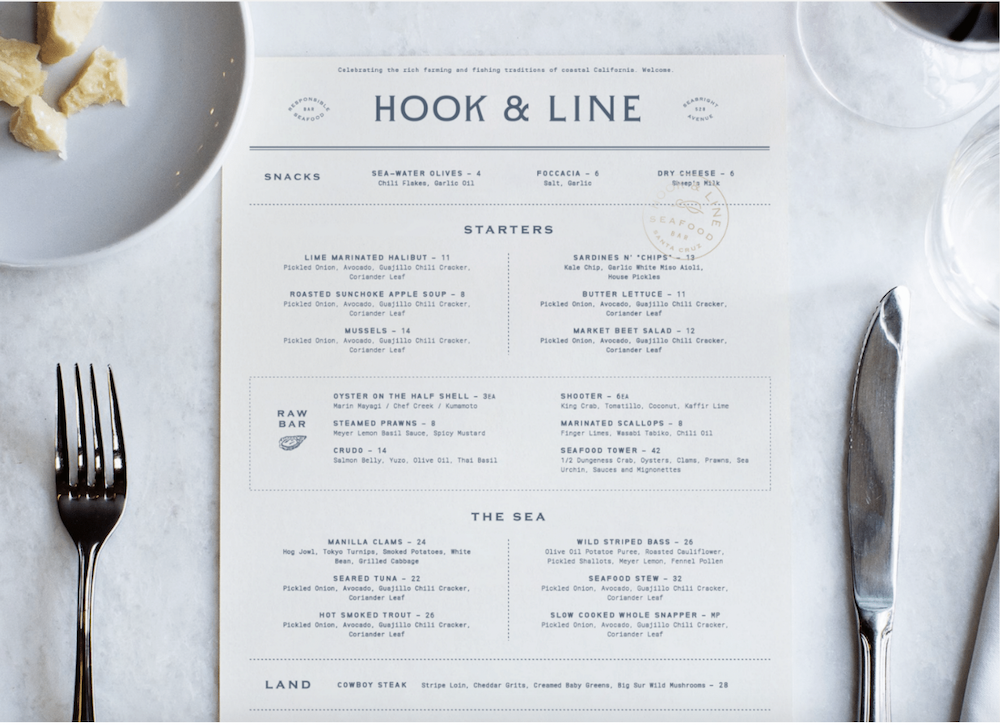
“I am one of their committed investors myself,” says Boyle. “I have put my money where my mouth is, because I really believe in Santos and I believe that young people in Santa Cruz have a really hard time unless they are wealthy. I see what Alexis (Carr) and Dede (Eckhardt) are going through (at Soif Wine Bar). They have created an amazing thing: a great community of food and wine professionals that spans a wide age range. We need more of those kinds of spaces where all sorts of people want to come in. This is what creates community and builds understanding among all groups and ages.”
Boyle reminds us that restaurants are really important places where people can go and have encounters with their fellow citizens and engage in dialogue. “The community needs places to meet,” says Boyle. “They help describe the character of the community, and they are important community members themselves.”
This is what makes a community thrive, she believes. This is what turns a town, a village, a city, into a place that not only makes its inhabitants proud and committed to one another, but attracts others to be part of it. This, after all, is the promise of America. And why Santos and Lejla came here in the first place.
About the author
Laura Ness is a longtime wine journalist, columnist and judge who contributes regularly to Edible Monterey Bay, Spirited, WineOh.Tv, Los Gatos Magazine and Wine Industry Network, and a variety of consumer publications. Her passion is telling stories about the intriguing characters who inhabit the fascinating world of wine and food.
- Laura Nesshttps://www.ediblemontereybay.com/author/lness/
- Laura Nesshttps://www.ediblemontereybay.com/author/lness/
- Laura Nesshttps://www.ediblemontereybay.com/author/lness/
- Laura Nesshttps://www.ediblemontereybay.com/author/lness/


